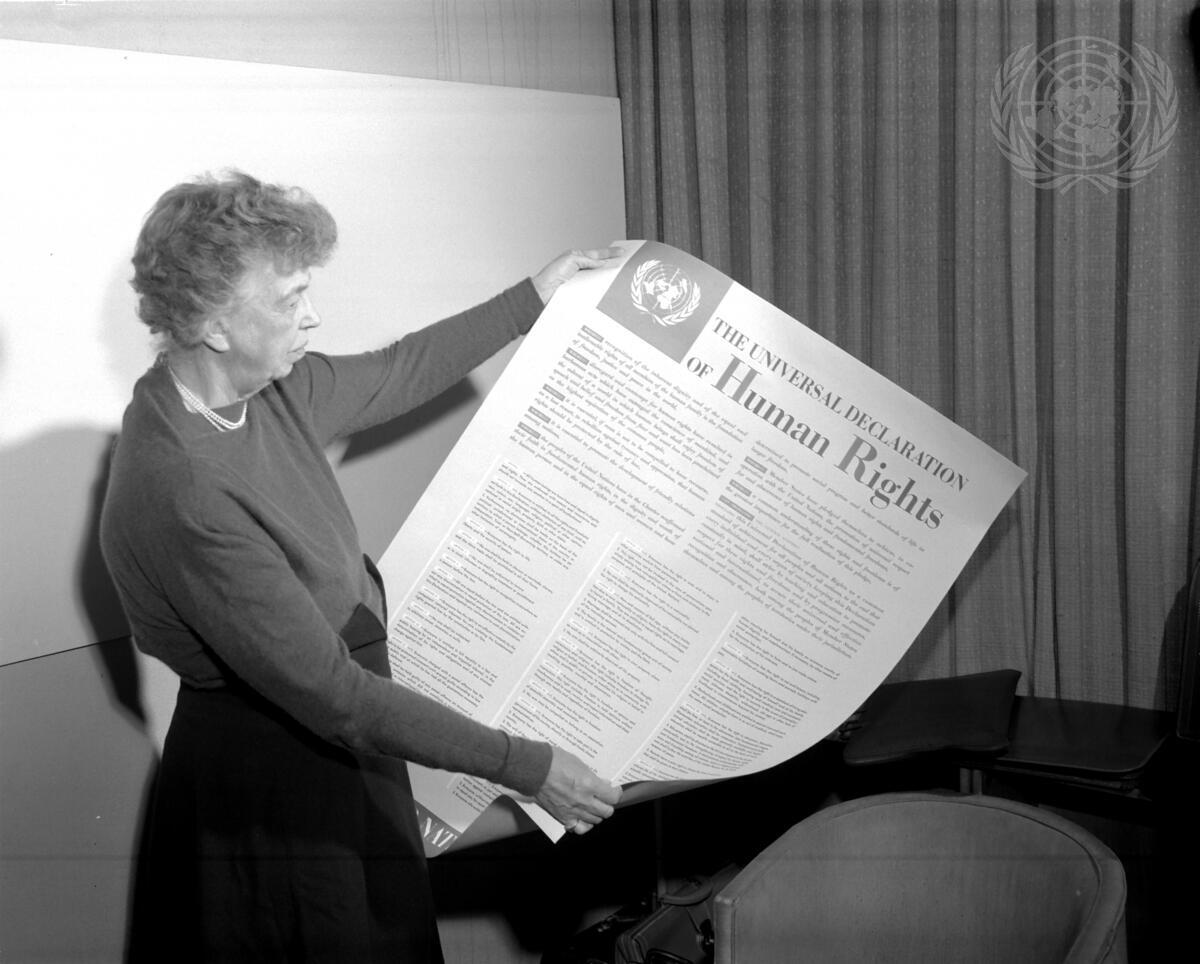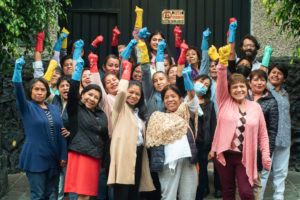What are human rights? Where do they come from? And do they still matter? This Human Rights Day, read our latest Fund 101 Q&A to learn more.

Every year, December 10 marks Human Rights Day—a chance to reflect on the progress and potential of the human rights movement.
But what are human rights? Where do they come from? And do they still matter?
In many ways, this has been a challenging year for the human rights movement. Authoritarian governments surged to power in countries around the world. Repressive legislation seeks to limit women’s rights, LGBTQ+ rights, migrants’ rights, and more. Successive global summits on biodiversity and climate change failed to meet the urgency of the moment. And violent conflicts continue to wreak havoc and devastation on vulnerable people, from Ukraine to Gaza.
But this moment of global uncertainty and upheaval has reaffirmed that human rights are more important than ever. The core principles, outlined 76 years ago in the 1948 Universal Declaration of Human Rights, continue to resonate and inspire courageous action. And human rights defenders across the globe continue to demonstrate unyielding bravery—from the Democratic Republic of the Congo, where Fund grantee Philippe Ruvunangiza was recently awarded the prestigious Civil Courage Prize for his work with mining-affected communities, to Mexico, where Fund grantee OFPC won a major case after decades of advocacy and litigation.
As we take stock of this year’s progress on human rights, we put together this Q&A to remind everyone why human rights are still worth fighting for.
What are human rights?
Human rights are universal and non-negotiable freedoms that are shared by everyone. They apply regardless of where you are from, what you believe, or how you choose to live your life—that’s what makes them universal. In 1948, in the aftermath of the horrors of World War II, the fledgling United Nations ratified the Universal Declaration of Human Rights (UDHR). The UDHR outlines 30 of these shared freedoms, including the right to life; the right to be free from torture and from slavery; the right to seek asylum from persecution; and the rights to freedom of opinion, speech, and assembly. These rights, taken together, make up the basis for international human rights law. And that legal framework, in turn, has inspired and underpinned the global human rights movement.
Are human rights the same everywhere?
While the core principles of human rights are universal, the understanding, promotion, and implementation of these rights can vary significantly from one place to another. The body of international human rights case law is intended to set a common standard that all countries should strive to meet. But cultural, political, and economic differences certainly influence how human rights are perceived and protected.
The Fund supports grassroots human rights defenders in dozens of countries around the globe. The activists, organizations, and movements we fund share a common dedication to some core values: equality, fairness, respect. But they may approach their work in completely different ways. They may, also, have differing views on the UDHR itself. Some see it as a necessary guiding framework for progress toward a more rights-based future. Others believe it is well-meaning but outdated, and that it didn’t adequately represent the perspectives of human rights defenders in countries outside the Global North.
Who defends human rights?
Because we all share human rights, they can be defended by anyone—at any level.
At the international level, human rights are protected through international treaties, national laws, and organizations dedicated to monitoring and enforcing these rights. Key documents like the UDHR set the standards of human rights. Multilateral bodies like the United Nations or the International Court of Justice help enforce these standards. And non-governmental organizations—including the Fund—play crucial roles, providing research, advocacy, funding, project implementation, and other forms of action and support.
At the same time, much of the most important work defending human rights happens at the local level. Human rights don’t just belong to international lawyers or organizations. We believe that people who are actually affected by human rights violations are best placed to develop the solutions. These grassroots human rights defenders, like those supported by the Fund, are on the front lines of the fight for human rights in their communities. Whether they’re fighting for women’s rights or LGBTQ+ rights at the national level or addressing injustices in their own communities, their vital work sustains the human rights movement every day. By shifting power and resources into their hands, we can help build bigger, stronger movements for change.
What challenges do human rights face today?
Despite decades of progress, the human rights movement is increasingly under attack today. Authoritarian and right-wing populist regimes around the world are intent on rolling back hard-earned rights—one doesn’t have to look far to see examples of this. States are acting with impunity, subjecting civilians to systematic acts of internal repression and external aggression in flagrant breaches of international law. And our global economic system is driving rampant inequality, concentrating power and wealth into fewer and fewer hands at the expense of human rights around the world.
With the framework of human rights under attack, human rights defenders themselves face heightened dangers. Nearly 200 land and environmental rights activists were killed last year. Governments are clamping down on civic space and restricting basic freedoms to speech and assembly. A rash of new legislation threatens activists directly, including so-called foreign agent laws that restrict international funding and anti-LGBTQ+ laws that criminalize LGBTQ+ advocacy.
In the face of these mounting threats, there is clearly need to both reform some of the international institutions that are falling short on human rights but also to reinforce the vibrant civil society activists who defend human rights every day in their communities.
History has shown us, time and time again, that when people most impacted by the issues come together to push for change, progress can and will happen. Activists on the front lines all over the world are working to enact the core principles of human rights—dignity, equality, respect, and freedom—through grassroots work. And the Fund will be there to provide the long-term flexible funding, accompaniment, and other forms of support needed to overcome these current challenges.
Sign up to our newsletter
Add some impact to your inbox.
By submitting this form, you accept that your data will be stored and processed in line with our Privacy Policy.



